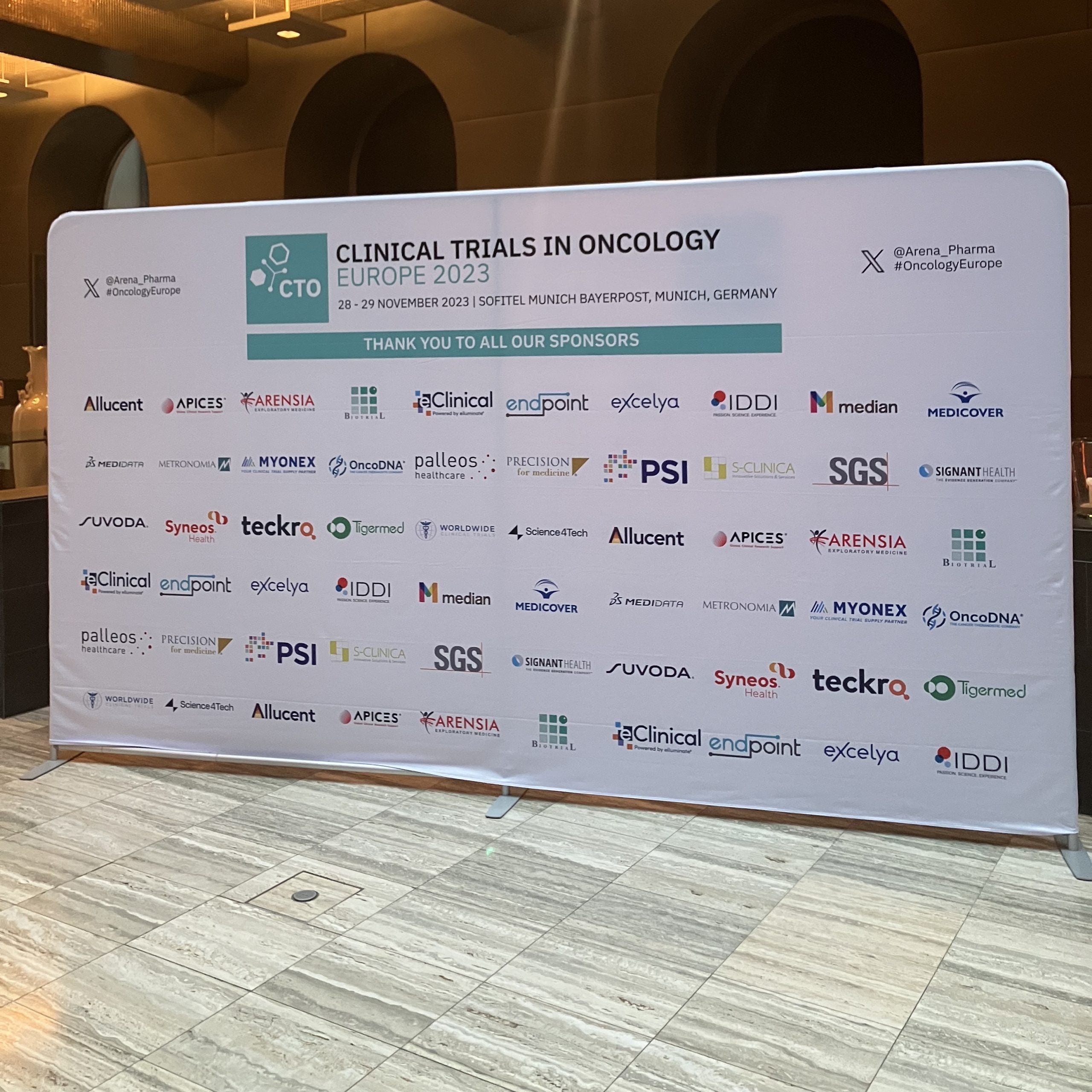
Global developments and old challenges clash with the arrival of new technologies for drug development in oncology, creating both opportunities and obstacles for small biotech and big pharma.
This year’s Clinical Trials in Oncology (CTO) Europe 2023 reflected some of the key issues facing companies in oncology, ranging from talks and roundtables on how to ensure greater diversity in clinical trials to the importance of choosing the right contract research organisation (CRO) and the impact of new regulations in the European Union and the US.

Discover B2B Marketing That Performs
Combine business intelligence and editorial excellence to reach engaged professionals across 36 leading media platforms.
The event featured a mixture of speakers from CROs, biotechs, and even big pharma, who all gathered in Munich, Germany on 28 – 29 November.
New solutions to fight old problems
Opening the conference, BeiGene’s director of Clinical Science Stefano Ferrara described the impact of the Covid-19 pandemic on the adoption of digital trial capabilities and the future of technology-enabled clinical trials. While the pandemic may have increased the adoption of digital trial capabilities, the path forward will likely involve a certain hybrid approach where patients will have a greater degree of optionality to decide between remote and on-site visits. The remote and onsite eClinical software field will also see further improvements, according to Ferrara.
Seeing an increased move towards precision medicine, the use of remote technologies and remote sites could be used to pre-identify patients to avoid further straining main clinical sites, said Alexis Hobbins-White, senior director of operational strategy at the CRO Precision for Medicine, at the final session of the first day.
Still, while there are ways in how patients can be supported by digital technologies, human contact remains important, said Pauline Frank, patient engagement and insights director? of Oncology Worldwide Medical Affairs at Novartis.

US Tariffs are shifting - will you react or anticipate?
Don’t let policy changes catch you off guard. Stay proactive with real-time data and expert analysis.
By GlobalDataAs part of the presentation, Frank spoke of the ways in how patient perspectives can be used to improve recruitment and their experience in oncology trials. This includes the use of digital technologies for a greater understanding of the trial itself, such as by using short video explanations and electronic Informed Consent Forms (eICFs). Similarly, social media can be used to improve recruitment by tapping into online patient communities.
Such findings were presented alongside broader insights into the challenges behind patient recruitment in oncology trials. According to a presentation held by Stefanie Schier-Mumzhiu, director and global program operational head at MorphoSys, one out of every five oncology trials are terminated early with the main reason being poor recruitment.
The field continues to feel the impact of political instability and economic volatility, said Madalina Vasile, head of operations at Arensia Clinics in Cluj, Romania, as part of her presentation. Additionally, supply shortages continue affecting the sector as a global challenge. At the same time, the industry is shifting towards more complex studies and growing expenses.
Similarly, the introduction of new technologies can also prove as a challenge, noted Brian Deighan, program director at Teckro, during a different talk. More than ever, trial success or failure sits on the sites that the company selected, added Deighan.
Selecting the right CRO is critical for early stage biotechs
Indeed, collaborations with CROs as an early-stage biotech were a key point of discussions at the conference on the second day. Nicolas Schneider, director of Clinical Operations and Alliance Management at ITM (Isotope Technologies Munich) focused on how smaller biotechs should identify the right CRO and vendors.
Vendors may also find some advantages with working with smaller biotechs like shorter communication lines and faster decision making due to the smaller size of the companies, said Schneider. Robert Dobosz, director of Clinical Trials Solutions at Ryvu Therapeutics, spoke about how small biotechs should negotiate with CROs to extract the most value out of their contracts. According to Dobosz, while selecting the right CRO will prove both cost and time-efficient for the studies, an inappropriately selected CRO will lead to significant delays and the loss of a company’s position on the market.
Tapping into his experience at Ryvu, Dobosz described the company’s hybrid approach where the company selects the clinical sites in its native Poland while using CROs for sites abroad. According to Dobosz, a “smart biotech” approach would include increased internalisation of different tasks such as site management and monitoring, which closes oversight and optimises the cost.
Speaking from the CRO viewpoint, Hobbins-White stated that it is essential companies partner with experienced CROs that have a core of operational strategy.
Meeting new regulatory demands
Beyond the impact of new technologies and world events, businesses also face new pressure from regulators such as the FDA and the European Medicines Agency (EMA).
Rachel Horovitz, vice president at Medidata AI, discussed the FDA’s increased push to diversify clinical trials through new guidelines and regulations. Greater diversity in clinical areas such as oncology is needed since individuals from distinct backgrounds may react differently to investigational therapies, pointed out Horovitz.
However, some companies are apprehensive about this due to fears that this could impact their development timelines and add further pressure to their plans, noted Horovitz.
The implementation of new in vitro diagnostics (IVD) regulations has also proven to be an obstacle in early stage clinical trials, based on a session hosted by Malte Oppermann, senior director of Clinical Operations at Medigene. According to Oppermann, the regulations put companies at a disadvantage when it comes to starting clinical trials in the EU.





